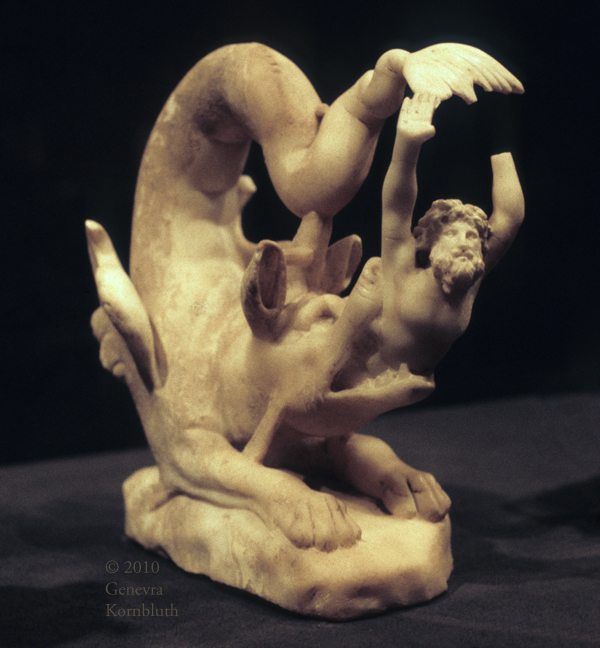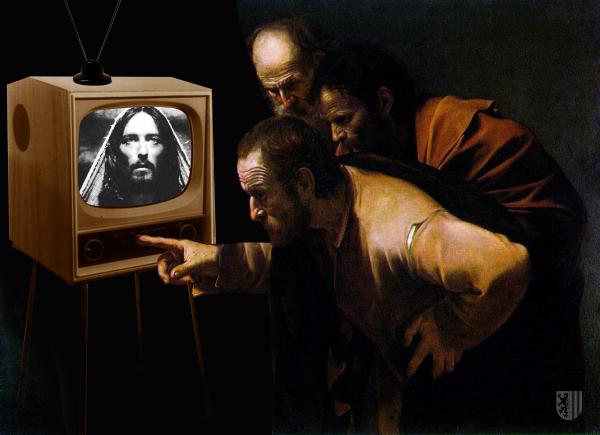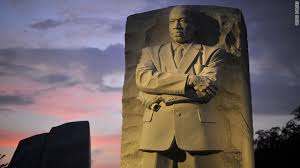Meditation: Spoiler Alert
 Monday, January 7, 2013 at 09:52AM
Monday, January 7, 2013 at 09:52AM  Moby Dick wins. A crazy Southern guy shoots Lincoln at the Ford Theatre. Bruce Willis is dead the whole time in the The Sixth Sense. Sometimes it pays to steal a peek at the back of the book. It can change the way you see everything.
Moby Dick wins. A crazy Southern guy shoots Lincoln at the Ford Theatre. Bruce Willis is dead the whole time in the The Sixth Sense. Sometimes it pays to steal a peek at the back of the book. It can change the way you see everything.
Or take Jonah. The book, more accurately. If you read it backwards you discover God’s not mad at Nineveh at all. His heart is broken over a great city, filled with people so disoriented they have forgotten their right from their left.
It’s a short book. Read along with me--backwards.
Jonah 4:10 ~ It turns out God loves people, even remarkably screwed up people: “Nineveh has more than a hundred and twenty thousand people who cannot tell their right hand from their left, and many cattle as well. Should I not be concerned about that great city?”
Jonah 4:2-3 ~ It turns out that the Holy Man would rather die than watch God forgive people who don’t deserve it. “That is why I was so quick to flee to Tarshish. I knew that you are a gracious and compassionate God, slow to anger and abounding in love, a God who relents from sending calamity. Now, O Lord, take away my life, for it is better for me to die than to live.”
Jonah 3:4 ~ It turns out that some judgment messages are actually God’s way of reaching out to people: “Jonah started into the city. He proclaimed: “Forty more days and Nineveh will be overturned.”
Jonah 3:1 ~ It turns out that even religious bigots should get a second chance. “Then the word of the Lord came to Jonah a second time.”
Jonah 2:10 ~ It turns out vomit is gross.
Jonah 2:8 ~ It turns out God’s grace is inexhaustible, but we have to make room for it: “Those who cling to worthless idols forfeit the grace that could be theirs.”
Jonah 1:14 ~ It turns out pagan sailors know God better than we think: “Then they cried to the Lord, “O Lord, please do not let us die for taking this man’s life. Do not hold us accountable for killing an innocent man.”
Jonah 1:1 ~ It turns out God’s a pretty good poker player, don’t you think? “Go to the great city of Nineveh and preach against it, because its wickedness has come up before me.”
This week's meditation? Don't be so quick to judge others (pagans, sailors, or prophets) until you know the end of the story.
Jesus, the Accessible Leader
 Thursday, January 3, 2013 at 02:46PM
Thursday, January 3, 2013 at 02:46PM  . . . And then there’s the time my bad hearing caused three bruises on my arm. I was standing in front of a judge, trying to talk my way out of a speeding ticket. At the very end of the conversation the judge said something, but I couldn’t understand her. I thought she wanted me to step closer. I took two steps forward when suddenly the bailiff grabbed my arm and pulled me to the side. The next day three bruises blossomed on my arm, where the guard had grabbed me. I didn’t get out of the ticket.
. . . And then there’s the time my bad hearing caused three bruises on my arm. I was standing in front of a judge, trying to talk my way out of a speeding ticket. At the very end of the conversation the judge said something, but I couldn’t understand her. I thought she wanted me to step closer. I took two steps forward when suddenly the bailiff grabbed my arm and pulled me to the side. The next day three bruises blossomed on my arm, where the guard had grabbed me. I didn’t get out of the ticket.
Go ahead: just try to get close to someone important. Movie stars and athletes have their handlers. Politicians have armed guards. CEO’s are shielded from phone calls, emails, and sit in corner offices you cannot reach by a public elevator. In our day, one of the markers of leadership is in-accessibility.
Not so with Jesus. Yes, I know--it was a different place and time. But the important people of his day were equally distant. Caesar had his armies. Pilate had his centurions. The High Priest of Israel was surrounded by his religious associates and armed guards. Each of these men had the power to summon others before them, and each had the ability to hold anyone at a distance. Jesus accurately described his century--and ours--when he said, “The kings of the Gentiles lord it over them; and those who exercise authority over them call themselves Benefactors. But you are not to be like that. Instead, the greatest among you should be like the youngest, and the one who rules like the one who serves. For who is greater, the one who is at the table or the one who serves? Is it not the one who is at the table? But I am among you as one who serves.”
The gospels reveal a remarkably accessible Lord. A sick and elderly woman could press through the crowd and touch him. A woman of questionable character could crash a dinner party and weep at his feet. Lepers had access. A desperate father could bow before him. Even when Jesus wanted to slip away for some private moments the crowd would follow him--and he would feed thousands.
Matthew’s gospel calls reveals his openess from first to last: at the beginning of the gospel Jesus is labeled “Immanuel,” God with us. In the very final chapter, even as Jesus is leaving the planet, he makes this promise. “Surely I am with you always . . .” Here is a staggering revelation: the very one with all authority in heaven and earth is also the one who is always available. He will allow nothing to keep him from us. Not the powers of this world, nor the rules of religion, nor even our own wayward, screwed-up lives. In the words of some eloquent speaker, “Jesus left the most exclusive gated-community in all creation in order to be with us.” Nor is this a history lesson--it’s true today as well.
The lessons of his accessibility are two-fold.
First, who can keep us from the love of God? The Apostle Paul runs out of words when he tries to describe God’s open-door policy. “Who shall separate us from the love of Christ? Shall trouble or hardship or persecution or famine or nakedness or danger or sword?” Not even the violence and cruelty of others can keep him away.
Second, Jesus demonstrated that true leadership is about presence, not authority. Though he had all authority, he chose instead to be with us. One of the tests of leadership is the grace to endure countless interruptions, because we serve those we lead.
What Jesus does supernaturally he first did day-to-day. He was with us. And he is still.
The Year in Review at Students of Jesus
 Monday, December 31, 2012 at 11:16AM
Monday, December 31, 2012 at 11:16AM  I’m very big in Hungary, apparently. That’s the headline from the Students of Jesus year in review, my annual exercise in narcissism where I look back on the past year. According to Google Analytics, Hungarians are in fourth place among my readers, following the United States, the United Kingdom, and Canada.
I’m very big in Hungary, apparently. That’s the headline from the Students of Jesus year in review, my annual exercise in narcissism where I look back on the past year. According to Google Analytics, Hungarians are in fourth place among my readers, following the United States, the United Kingdom, and Canada.
This year-end review benefits, um, well, me actually--and I’m usually astounded by the disparity between which post received the most page views and which ones were my personal favorites. This year, however, the blogosphere and I were much closer in our judgment than in years previous.
Since you would cripple yourself by missing even one Students of Jesus post, I present this list of top items in an effort to keep you whole:
Top Five Posts (by page views):
Sinners in the Hands of Willy Wonka 2/23/12 ~ This post was six times more popular than any other. Turns out “Willy Wonka” is a frequently searched name. Imagine the disappointment of those who clicked through to discover it was really a post about the grace of God.
Jesus, Friend of Pharisees 4/12/12 ~ This post includes a picture of Jesus driving the money-changers from the Temple. He was pretty angry, and so was I when I wrote this. So this is what I sound like when I’m P.O.’d.
Who Funds Your Imagination? 7/5/12 ~ Whenever things get slow at Students of Jesus, I quote Walter Brueggemann. Either him or someone from FoxNews. That usually stirs things up. This post is about -- well, heck -- just go read it.
Four Lessons I learned from Jefferson Bethke 1/19/12 ~ Meeting Jeff Bethke was one of the delights of this year. In my work as an editor I interviewed him via telephone for an article I wrote elsewhere. I was completely charmed by his grace and humility--even more so because his home church is frequently maligned as heavy-handed and authoritarian. If Jeff is any indication of the fruit of that ministry, then I’m a fan.
Sarah Bessey’s Parable of the Father 5/5/12 ~ Whenever things get really, really slow at Students of Jesus, I ask Sarah Bessey to guest post. She loves Jesus, is way-smart, and wears cardigans. Her post was part of an ill-fated series dedicated to exploring the parables of Jesus. I figured this series would take off, but it turns out we in the blogosphere would much rather argue about really significant stuff like--uh-oh, I should shut up here. Anyway, Sarah is a treasure, and she’ll release a book later in 2013. It’s the charming story of a woman who owns an independent bookstore on the upper east side of Manhattan, when a big evil chain bookstore opens one block away. The woman falls in love with the chain-store owner, but Amazon.com puts them both out of business. (Or something like that)
The one article I wish everyone could read:
Well, all of them, really (I told you I was a narcissist). But if you don’t have time for them all, please check out Lazarus Quenby and the Reasonable Dinner Party.
Thanks for making Students of Jesus the most popular spiritual formation blog that originates from Campbellsville, Kentucky. (Of course, it's the only spiritual formation blog that originates from Campbellsville, Kentucky.) Blessings!
Always Christmas, Never Winter
 Thursday, December 27, 2012 at 09:28AM
Thursday, December 27, 2012 at 09:28AM  Wednesday night, the evening after Christmas, our little girl laid by the fire and said, “Christmas goes too quickly.” I smiled a grown-up smile--the kind tinged with sadness--because I knew work was already calling. The world continued to turn. The business of life demanded my attention again. Our Christmas pause (happy as it was) was over. Already that night I had checked email twice, looking to get a jump on the work day ahead.
Wednesday night, the evening after Christmas, our little girl laid by the fire and said, “Christmas goes too quickly.” I smiled a grown-up smile--the kind tinged with sadness--because I knew work was already calling. The world continued to turn. The business of life demanded my attention again. Our Christmas pause (happy as it was) was over. Already that night I had checked email twice, looking to get a jump on the work day ahead.
Yet in that moment by the fire the true wisdom came from our daughter’s heart. Christmas was over too soon, and only a fool would not pause to lament its passing.
Here’s an exercise: imagine the happiest ending to any story ever told. Don’t hold back. Dream of something impossibly good. Infuse “happily ever after” with every practical joy you know. Now double it. If it doesn’t feel too foolish, write down the crazy joy and keep it stored in your phone so you can see it every time it comes to mind.
It’s a righteous exercise, the discipline of a mind engaged with the goodness of God. The surprising reality is that the New Testament urges us time and again to indulge ourselves with speculations of delight. The Apostle Paul concludes his prayer for others with, “to him who is able to do immeasurably more than all we ask or imagine.” Peter comforts a suffering minority with the phrase “Joy unspeakable, full of glory.” Reframing Isaiah, Paul exhorts reminds us neither can our eyes see, nor our ears hear--no, never could it enter into our hearts--all that God has planned for us.
Time and again he invites us to exercise our imagination toward his goodness and our destiny, because he cares for us. His care is complete. His goodness is without end. Love guides his immeasurable power. Our childish view of life with God does not contain too many pictures of delight, but too few--and too small.
Centuries later C.S. Lewis added his take: “You and I have need of the strongest spell that can be found to wake us from the evil enchantment of worldliness which has been us for nearly a hundred years.” Wordsworth chided us: “We have given our hearts away.” His powerful poem opens with the simple observation, “The world is too much with us, late and soon/ Getting and spending, we lay waste our powers.”
Better to live in the lament of Christmas gone too soon than to face grimly the “reality” of a workaday world. Better still--what if we discovered the path to unspeakable joy in the everyday business of life. What if Father Christmas has gifts to give us each and every day?
Meditation: The Blessed Tension of Christmas
 Monday, December 24, 2012 at 11:07AM
Monday, December 24, 2012 at 11:07AM  Among the gifts of the Christ Child is the tension of his birth. God becomes man--not only a man, but a child. Centuries-old promises are fulfilled before our eyes, but we do not see them. Joseph adopts a son, who will later adopt him. Perfection comes wrapped in scandal. The Lord of glory came with very little glory at all.
Among the gifts of the Christ Child is the tension of his birth. God becomes man--not only a man, but a child. Centuries-old promises are fulfilled before our eyes, but we do not see them. Joseph adopts a son, who will later adopt him. Perfection comes wrapped in scandal. The Lord of glory came with very little glory at all.
Two weeks ago I sat with earnest young disciples who eagerly embraced the tension of God’s Kingdom: ever close, ever appearing, yet awaiting the full light of day. Together we explored that tension in scripture, and together we reflected on that same tension in our own lives.
“In what way has God’s Kingdom appeared in your life?” asked our young leader. “And in what ways do you wait for his appearing?” I didn’t get a chance to share my answers that evening, but this Christmas Eve I share them with you now.
God’s Kingdom has come! He has broken into my life: I'm grateful for his daily appearing in my family: where I am loved and forgiven, where I am known yet still embraced. This family is large and growing, beyond my wildest expectation. I'm grateful for the miracles I’ve seen: he has partnered with me in prayer for the sick, who are healed. I've witnessed the deaf receiving again their hearing; the barren conceiving children, and degenerative diseases rolled away. Eternal life, the with-God kind of life, does not begin some future day. I live in that eternal life here and now.
God’s Kingdom is yet to come! Together, with all who long for his appearing, I confess: I long to see his coming in me--when I will no longer be driven by the lash of fear or suspicion or the desire to put myself above others. I long to see his coming in the lives of my neighbors, so many of whom are captive to Xanax, OxyContin, alcohol, or weed, self-medicating their disillusioned lives. I long to see his coming when injustice is exposed for what it is, and the both the oppressed and the oppressors are set free from their bondage. I long to see the earth unfold in its glory, the glory reflected in God’s deep words over creation, “Behold it was all very good.”
God came to earth and lived incognito among us for 30 years. When at last he revealed himself we could not bear the glory: “He was in the world, and though the world was made through him, the world did not recognize him. He came to that which was his own, but his own did not receive him. Yet to all who received him, to those who believed in his name, he gave the right to become children of God.” (John 1:10-12)
My Christmas wish is the same for you and me. It lives in the tension as well: that we would all receive our birthright, and discover more of his Kingdom, and of its increase there would be no end.

